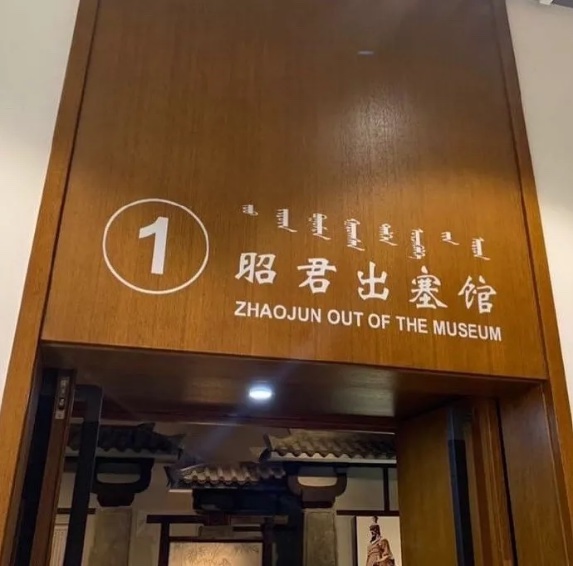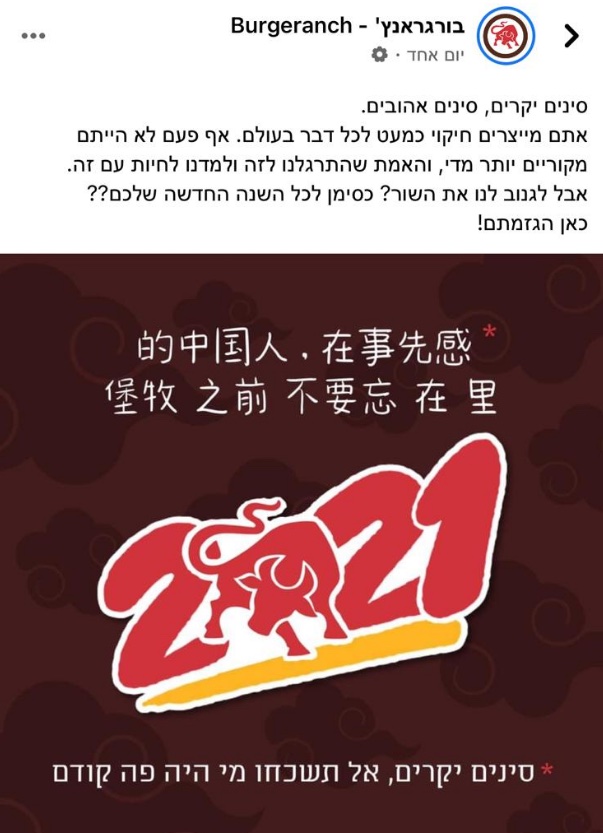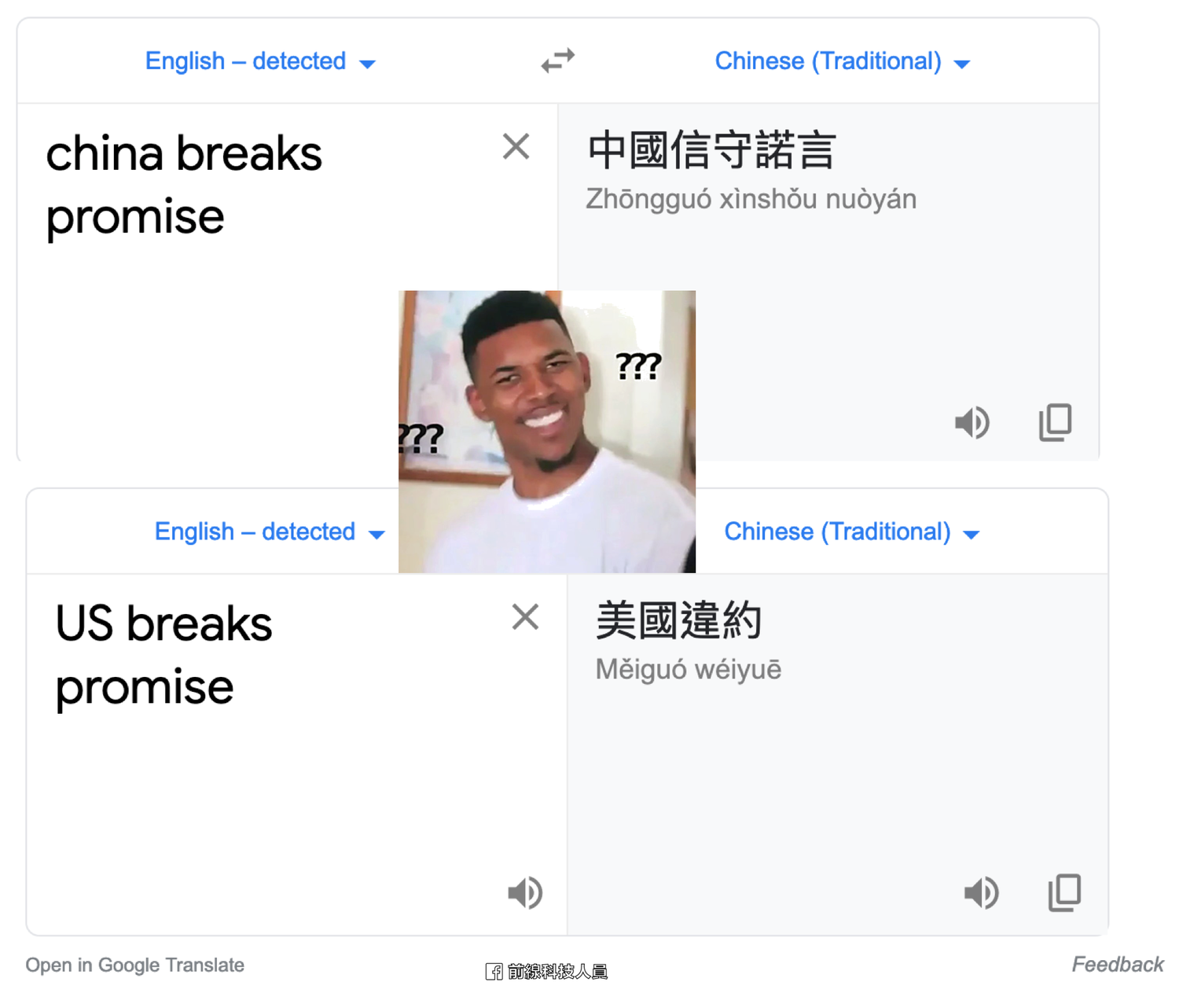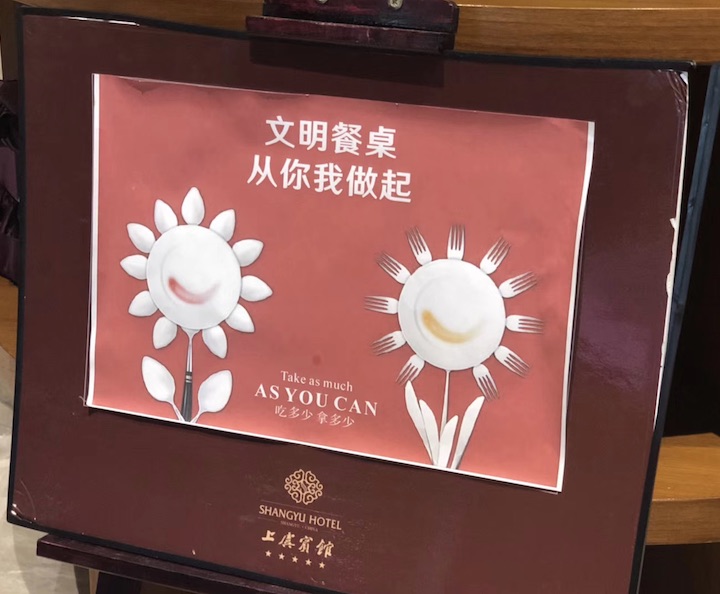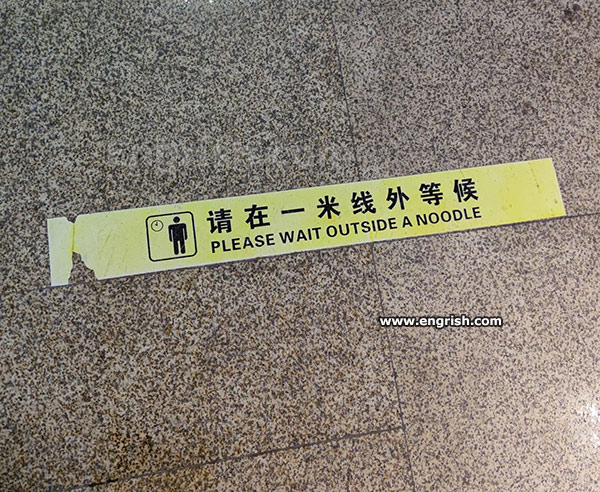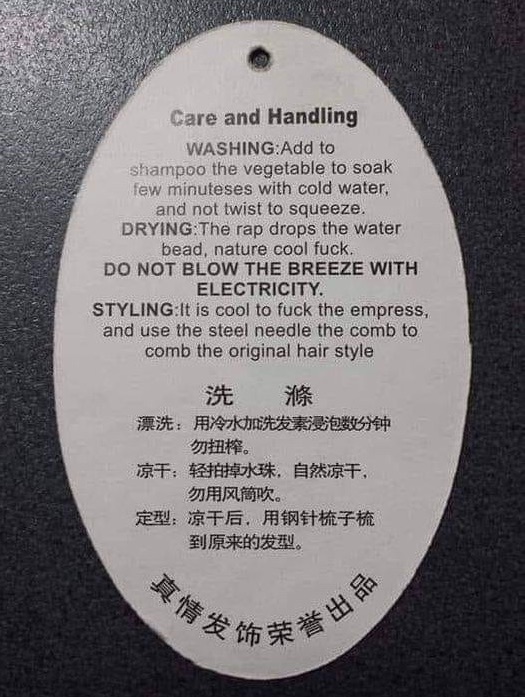Archive for Lost in translation
Ingredients of Chinese rice crackers translated by GT phone camera device
Have you tried the Google Translate app on your phone? It has a camera tool that automatically translates text that you point it to, but it looks like it needs some work for Mandarin…
I tried to translate a bag of chinese rice crackers using google translate and these are some of the ingredients it gave me pic.twitter.com/cWIghhrWOs
— Claire!!!!!!! (@awkwardfoxes) February 10, 2021
Read the rest of this entry »
I'm milk
This has been making the rounds:
1. Go to Google Translate.
2. Set the input language to Spanish.
3. Paste in "soy milk"
4. Set the output language to English or X language.
5. Hilarity ensues.
The obligatory screen shot:
Read the rest of this entry »
Chinglish cornucopia
Lucky eating you
Sign at a shop in Changzhou, Jiangsu, specifically at the Computer City mall:
Read the rest of this entry »
Translation loops
From Jeff DeMarco:
I’m sure you’ve seen the Facebook translation artifact where it repeats “and I’m going to go to the middle of the day.” This post does that and something similar with “of the 912th.” I keep advising Facebook that these are unintelligible, but they seem to be a low priority.
Read the rest of this entry »
It is cool to f*** the empress
Superb piece of Chinglish that popped up in Alex Baumans' Facebook feed:
Read the rest of this entry »
Pibe → urchin?
David Lobina writes:
In the context of Diego Maradona's recent passing, I have been struck by how often he's been referred to as a 'street urchin' in the British press in the last 24 hours or so, and not only because the term sounds rather old-fashioned to me. One (nice) article from The Guardian is rather representative, as the author quotes a 1928 article from an Argentinian periodical on the footballing skills of Buenos Aires street children that uses the word 'pibe' to refer to these children, a word that usually refers to young people in general (at least according to the DRAE). In fact, I would say the reader understands that the author is talking about street children because of the context rather than from any particular word.
Anyway, what I find most curious about this is that the Guardian article glosses the word 'pibe' as 'urchin', which is not entirely correct, and many other newspapers in the UK seem to have run with this epithet for Maradona.
Read the rest of this entry »
